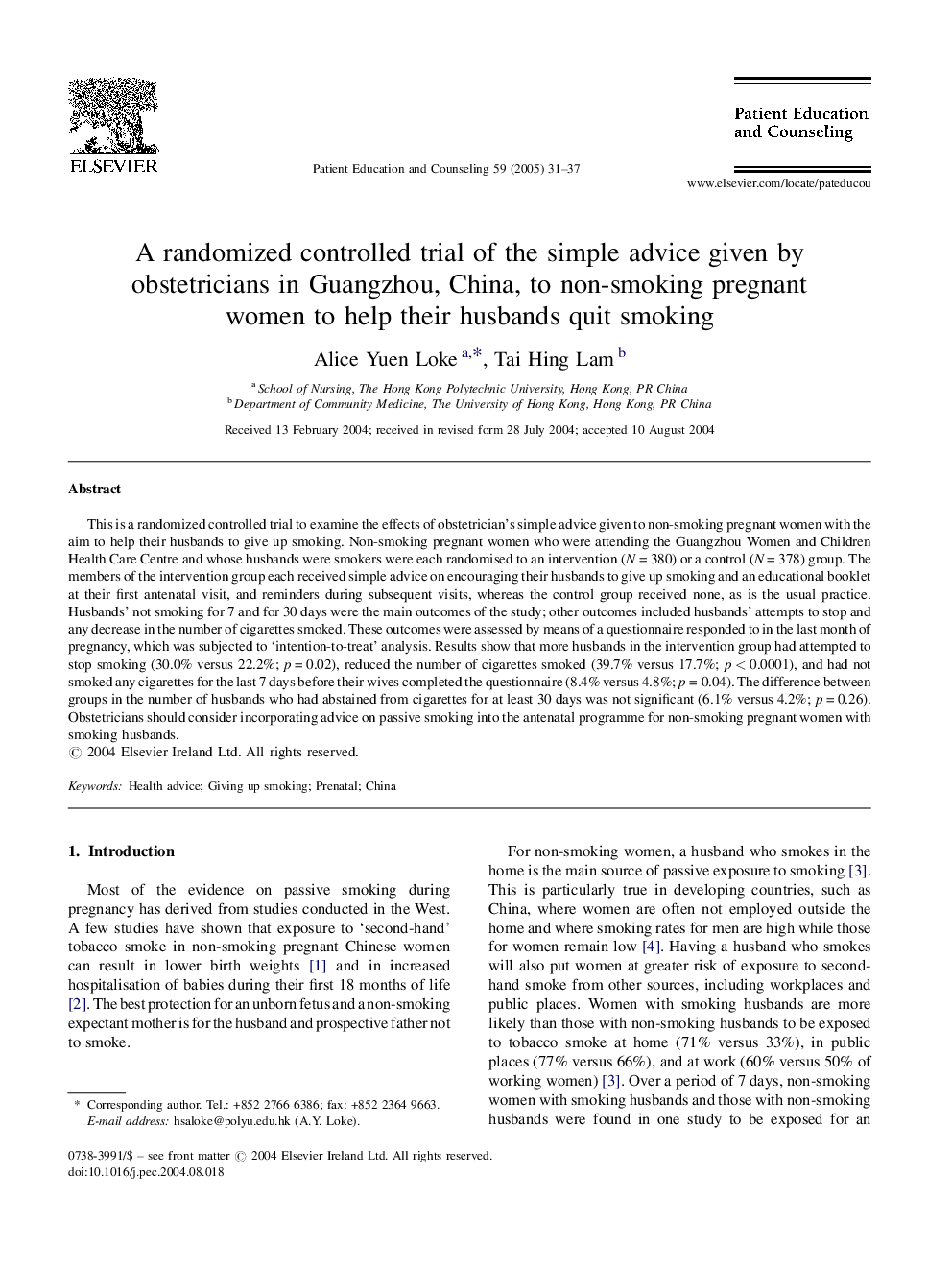| Article ID | Journal | Published Year | Pages | File Type |
|---|---|---|---|---|
| 9301429 | Patient Education and Counseling | 2005 | 7 Pages |
Abstract
This is a randomized controlled trial to examine the effects of obstetrician's simple advice given to non-smoking pregnant women with the aim to help their husbands to give up smoking. Non-smoking pregnant women who were attending the Guangzhou Women and Children Health Care Centre and whose husbands were smokers were each randomised to an intervention (N = 380) or a control (N = 378) group. The members of the intervention group each received simple advice on encouraging their husbands to give up smoking and an educational booklet at their first antenatal visit, and reminders during subsequent visits, whereas the control group received none, as is the usual practice. Husbands' not smoking for 7 and for 30 days were the main outcomes of the study; other outcomes included husbands' attempts to stop and any decrease in the number of cigarettes smoked. These outcomes were assessed by means of a questionnaire responded to in the last month of pregnancy, which was subjected to 'intention-to-treat' analysis. Results show that more husbands in the intervention group had attempted to stop smoking (30.0% versus 22.2%; p = 0.02), reduced the number of cigarettes smoked (39.7% versus 17.7%; p < 0.0001), and had not smoked any cigarettes for the last 7 days before their wives completed the questionnaire (8.4% versus 4.8%; p = 0.04). The difference between groups in the number of husbands who had abstained from cigarettes for at least 30 days was not significant (6.1% versus 4.2%; p = 0.26). Obstetricians should consider incorporating advice on passive smoking into the antenatal programme for non-smoking pregnant women with smoking husbands.
Keywords
Related Topics
Health Sciences
Medicine and Dentistry
Medicine and Dentistry (General)
Authors
Alice Yuen Loke, Tai Hing Lam,
